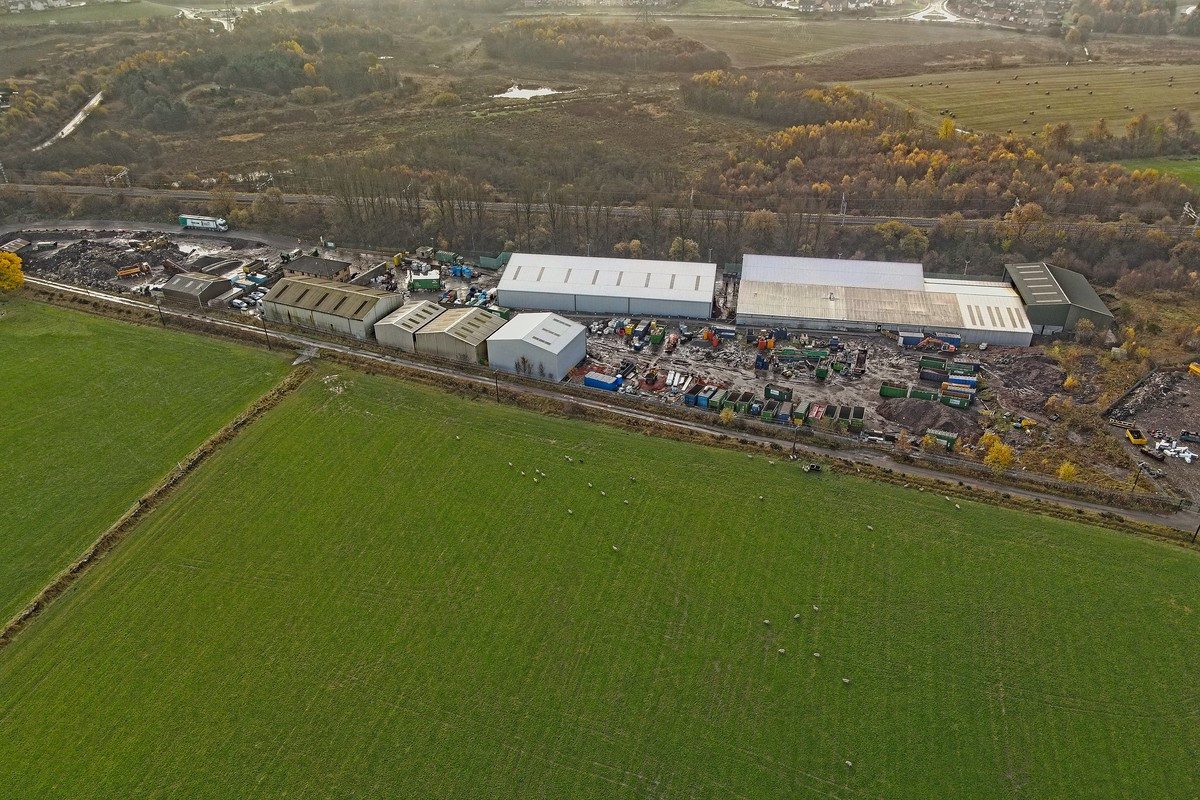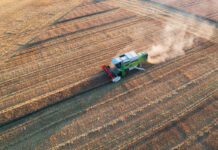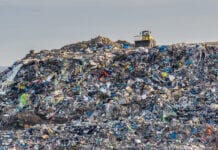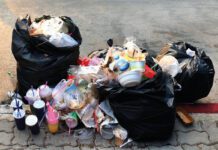
A leading UK and European recycling company was fined £20,000 at Airdrie Sheriff Court on 16 November after Scotland’s environmental regulator, SEPA, uncovered what it described as the largest single illegal export of household waste from Scotland.
Saica Natur UK Limited pled guilty on 21 September 2021 at Airdrie Sheriff Court to transporting waste collected from households (code Y46) to China in contravention of Article 36(1) of the Waste Shipment Regulation (EC1013/2006) and Regulation 23 of the Transfrontier Shipment of Waste Regulations 2007 (the Waste Shipment Regulations). Sentencing was deferred until 16 November.
SEPA said the waste, which came from the company’s Croy facility, was wrongly described as waste paper and totalled around 1,300 tonnes. It was loaded inside 51 forty-foot shipping containers destined for recycling in China.
Officers examining the bales of waste discovered electrical and electronic equipment, used nappies, sanitary towels, food contaminated packaging, food, dog excrement, wood, textiles, shoes, clothing, jewellery, aerosol cans, toys, glass, plastic food and drinks containers and cans.
Terry A’Hearn, SEPA’s Chief Executive, said:
“This incident is the most serious breach of the Waste Shipment Regulations, in terms of the quality and quantity of the waste, that SEPA officers have witnessed.
“SAICA Natur UK Limited has admitted to illegally exporting around 1,300 tons of household waste misdescribed as waste paper to an overseas country in direct contravention of regulations designed to protect the environment and communities. These actions also risk undermining Scotland’s efforts to recycle, as stories like this create doubt in the public’s mind that the recycling they put out for collection will be appropriately managed.
“I hope this prosecution serves as a warning to everyone that SEPA will not allow Scotland’s waste to become someone else’s environmental problem.
“We’re clear in what we expect of businesses of all sizes, from SMEs to specialist companies. Ignorance of the law, and especially well-established international and domestic laws, is no excuse. SEPA will continue to invest significant regulatory effort in monitoring waste exports to ensure compliance and will use a variety of approaches to successfully detect, disrupt and deter illegal waste exports from Scotland.”
Details of the case
SEPA says its officers became aware of poor quality waste paper bales on site during a routine audit of the company’s Materials Recovery Facility at Croy in 2016.
Officers from the regulator’s Producer Compliance and Waste Shipment Unit attended the site the following day to investigate further. On examining and picking over the bales of waste paper they found they were contaminated with a high level of household waste – including textiles, plastic, used nappies, metal, glass and food waste.
SEPA was informed that although waste paper was usually sent to the company’s paper mill in Manchester to be processed and recycled into cardboard, in June 2016 a fire at the mill greatly reduced its capacity to receive and recycle paper. As such paper was being exported for recycling abroad.
The site manager was advised that all exports of waste paper from the site should immediately stop. SEPA requested paperwork for all waste that had been shipped and then made the necessary arrangements to stop any waste in transit so it could be returned for inspection.
Officers immediately blocked and inspected three containers at Grangemouth Port whilst simultaneously liaising with Belgian colleagues to intercept 29 containers that were in Antwerp and return the other remaining containers that were already in transit to China.
Between September 2016 and March 2017 SEPA officers examined a sample of bales from the 51 containers. Items found within the bales, including food packaging, bottles, soiled nappies, food and textiles were removed.
Officers picking over the bales found waste including food, nappies and dog excrement, with a strong odour. The majority of the bales contained items which were clearly household waste such as soiled nappies, food waste, electrical equipment, clothing and toys.
Two of the bales of waste were broken up, partially sampled and found to contain around 18% to 19% of contaminants.
A small number of bales were identified to be suitable for export, but the overwhelming majority were not. Whilst a small amount of contamination is to be expected, and is acceptable, in the opinion of the SEPA officers who examined the waste the amount of contamination in this instance was far beyond what could be acceptable.
Since the issues identified with these 51 containers, Saica Natur UK Limited has taken action to improve performance at its Croy site. As well as a new training and management structure, there are quality checks of incoming and outgoing material, including visual inspections and sampling of the material in line with the requirements set out in the MRF Code of Practice.







